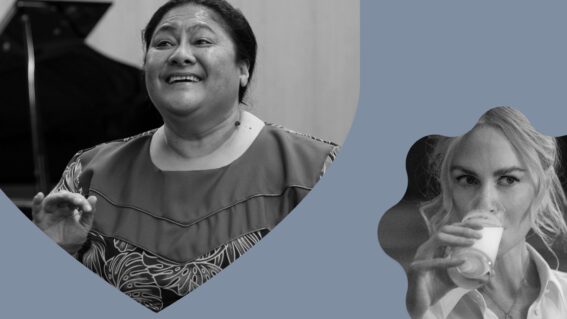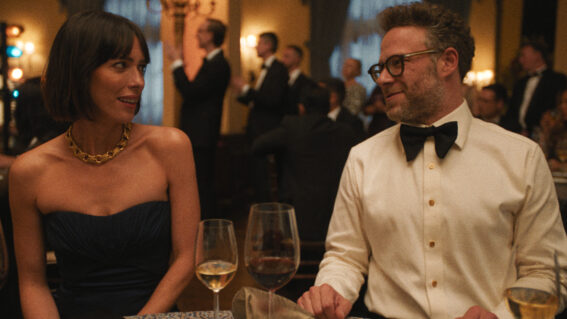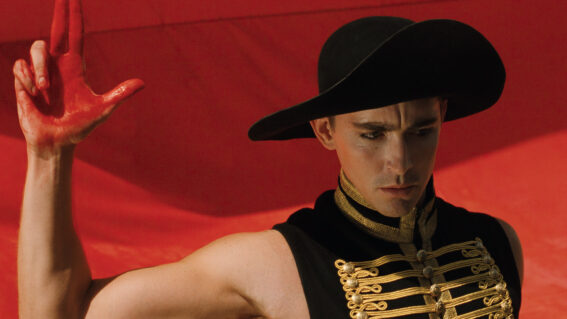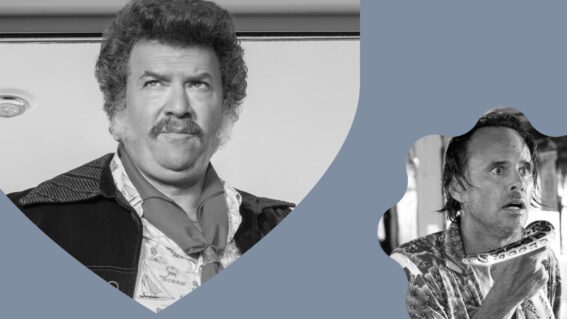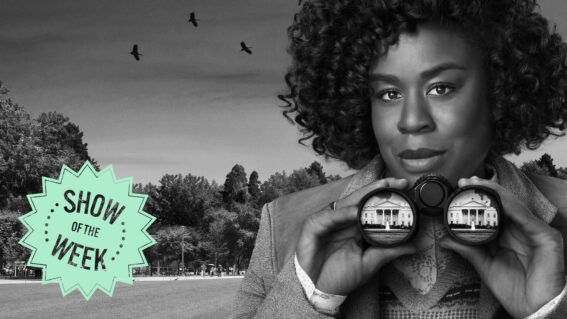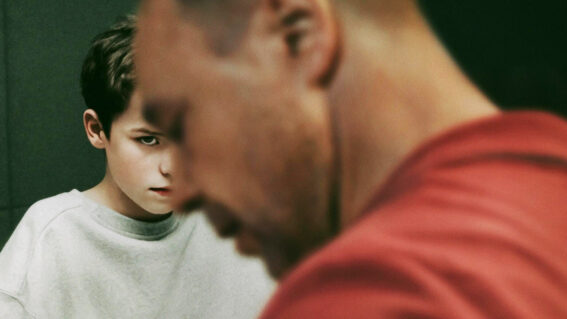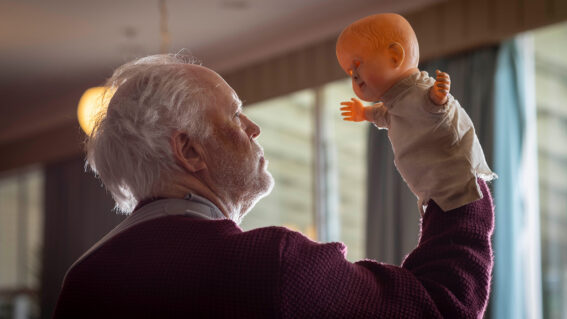“I wanna be on the frontiers of tone” – director Roseanne Liang talks Creamerie
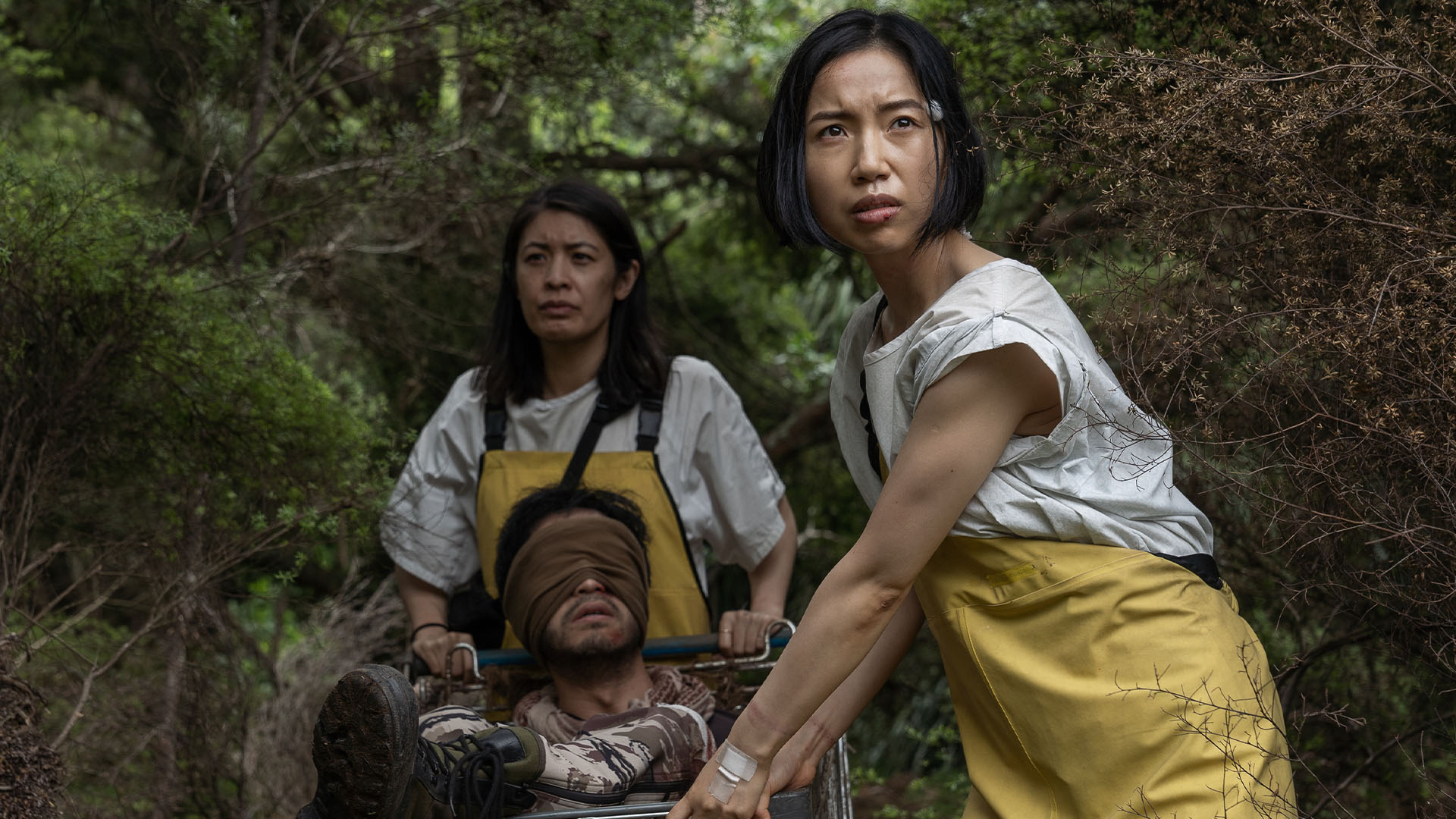
New Zealand dystopian comedy Creamerie, set in a world where men have been eliminated by a plague (or have they?), is back to up the ante in season two. Director Roseanne Liang joined Amelia Berry to discuss the new season.
Aotearoa in the not-too-distant future. A horrible plague has killed all men, leaving the women of the world to reorganise society. When three dairy farmers living in the remote Hiro Valley come across a male survivor, they find that their search for the truth about men puts them at odds with the new age fertility cult that now runs their village. What horrible secret are they hiding that’s pushing them to resort to such barbaric means of control?
This is Creamerie—a New Zealand web series that tempers its bleak gender dystopia with a giddy sense of humour. As the show enters its second season, I sat down with creator/director Roseanne Liang to talk about the inspirations behind the series, the challenges going into season two, and the genre-bending power of comedy.
“The seed of it,” Liang says, “was we were despairing about the world in 2018—so this was pre-pandemic, and Trump was president, and women’s agency over their own body was already being eroded at that time. We were just going ‘the world has gone to shit. What are we gonna do about it? And what kind of story would we tell?’ And then we were watching Handmaid’s Tale, and it just hurt us so much… that was one of the seeds of Creamerie, because we were like ‘how do we tell a story of resistance that doesn’t just hurt us to our core, that doesn’t make us feel so sad and heavy and just hopeless that there is no way to get to the future that we want to in this world now?’”
Like any good satire though, Creamerie isn’t just content spinning out that original inspiration—and with 2018 increasingly seeming like the pivot point into a whole new era of global politics, Liang makes a point of keeping the show’s commentary in conversation with current events.
“To the day that we’re shooting, we’ll be reading everything. We’ll be reading American politics, because America is like the earthquake that shakes the rest of the world—including New Zealand,” she says. “With the turning back of Roe v Wade and people having say about women’s bodies to a higher degree than ever before … [we’ve been] trying to read as many articles as we can about the way that certain factions claim agency over women’s bodies, it’s something that we’ve brought into this season, into the series and into our satire.”
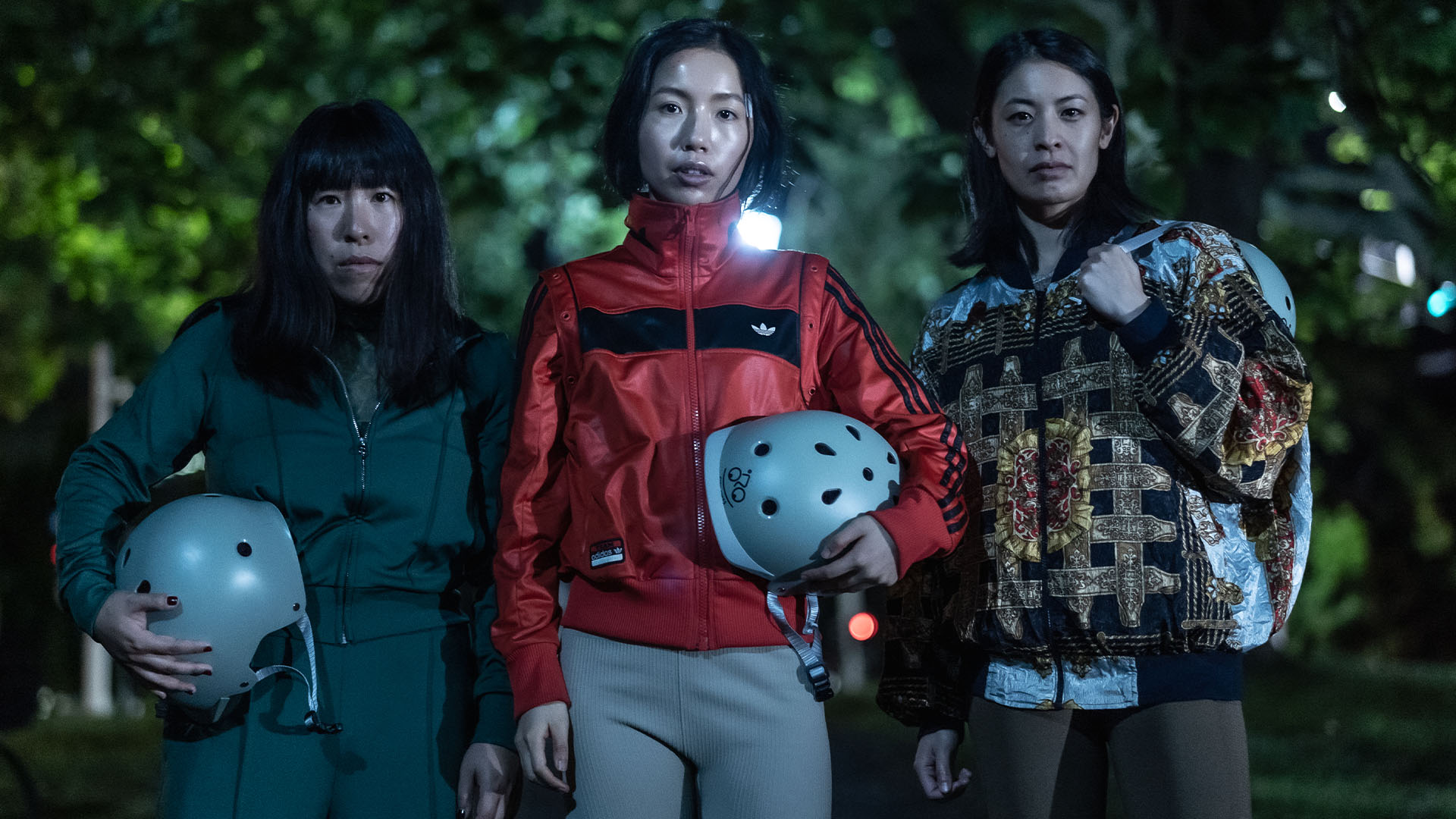
But between a keen eye for political trends and some straightforward coincidence, the show has ended up predicting as much as it’s parodying.
“First of all, the pandemic happened, and that was like ‘oh no’. And then our EP Tony sent us two articles; about wellness influencers being sucked into conspiracies… and he sent another article saying that COVID affected men’s sperm count. So he was like ‘stop writing the future!’” Liang laughs, “It’s like Death Note—we write something down and some version of it comes true in the world.”
With more screen time for Creamerie’s male characters in season two, Liang put a lot of thought into how to balance their storylines against that of three women at the heart of the show.
“There’s been lots of movies about the apocalypse and men,” she says. “And Bobby [Jay Ryan] has been through something, which you wanna talk about, right? He’s been through sexual assault, and we can’t just not talk about that. In a way, he’s a window into someone understanding how profoundly something like that can happen. Because he himself is in denial about what had happened.”
“You wanna talk about that. But you also don’t wanna make the show about him, because the show is about the Creamerie dairy farmers. It started with them, it started with these three women. But there’s a reason why there’s four people on the artwork, right? We talk about the Smurfette thing in action movies, right? And it’s not that we’re doing this out of some misandrist desire, but it’s three women and one man. Bobby is not exactly the Smurfette, but he’s both a focus and a support.”
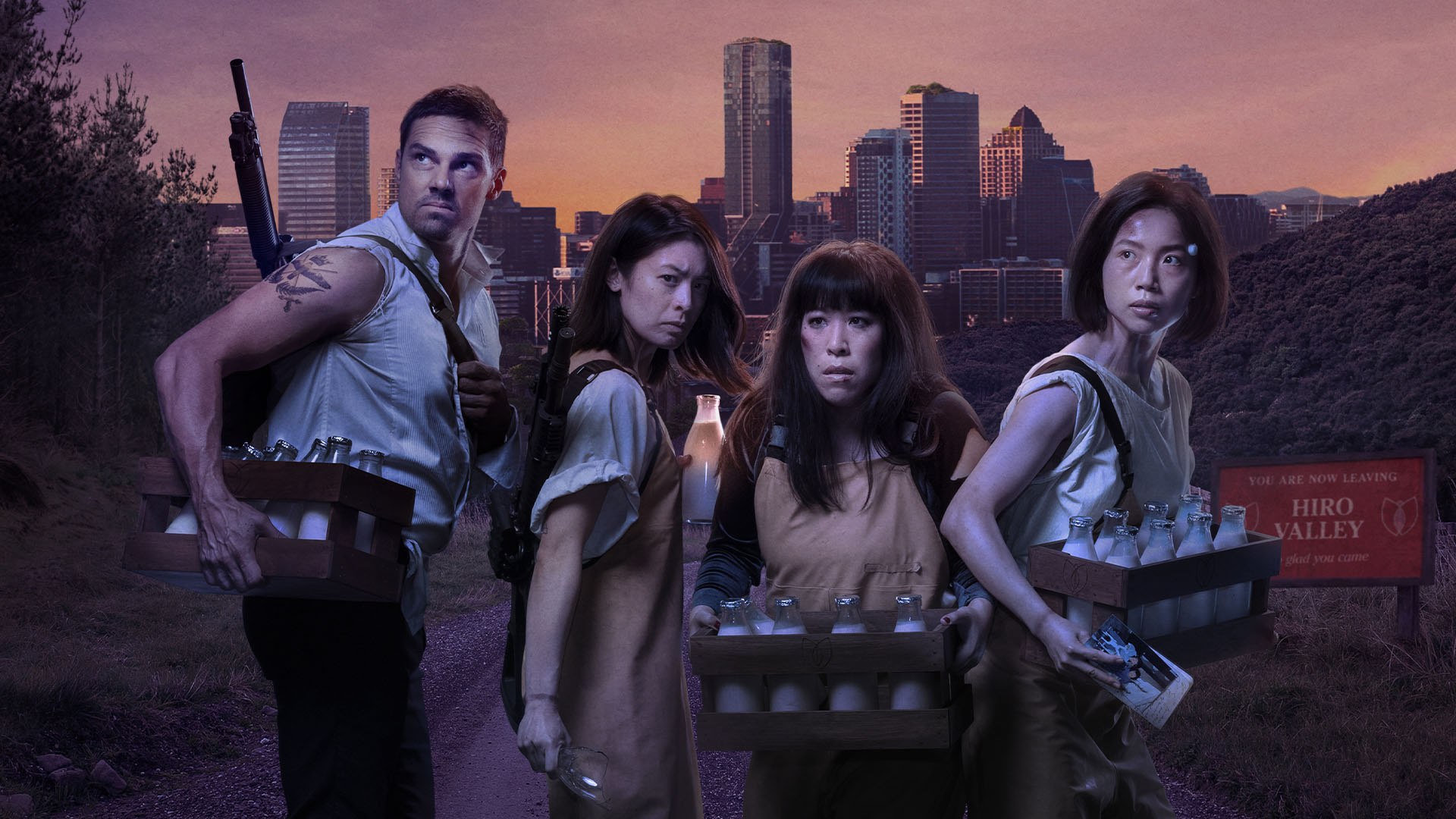
Working on Creamerie, Liang drew a lot of inspiration from the way a certain strand of surreal American comedy pushes at genre.
“One of the big inspirations tonally for Creamerie was the first season of Barry. One particular scene in Barry, actually, where he’s sitting in a car with his friend and he’s deciding whether or not to kill his friend, which to me was one of the most contained dramatic scenes in American television that year, let alone of comedy… And I was just floored by what the makers of that show had done tonally. They’d been able to put us on a storytelling roller-coaster, where it was possible to have silly slapstick humour with one of the most dramatic, tense things I’d ever seen before.”
“I was also obsessed with Atlanta in that year, when we were writing… Like, when you watch that series, you’re like ‘I can’t believe they did this!’ And right now I’m A Virgo by Boots Riley. It’s insane! It’s bonkers. It almost transforms you,” Liang says. “Good art is something that leaves you changed… And when I was watching series like Atlanta and Barry, and those scenes particularly, they did change me. They were like ‘I didn’t even know you could do this with comedy!’ I didn’t know that comedy had these final frontiers that we’re constantly pushing, and tone that we’re pushing… That’s where I wanna be as a storyteller. I wanna be on the frontiers of tone.”
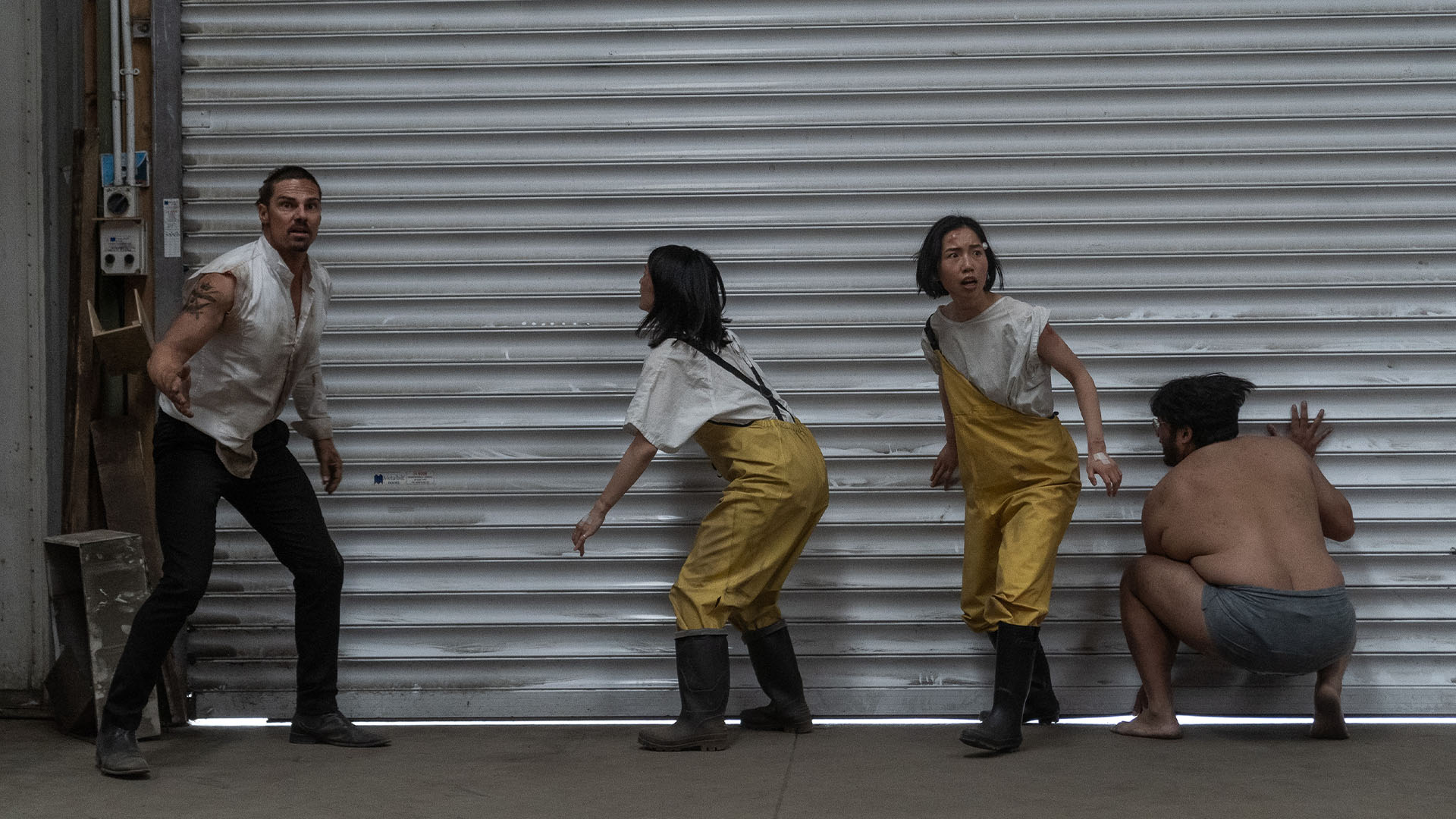
And for Roseanne Liang, comedy really is at the heart of what she’s doing with Creamerie.
“Comedy is like the seasoning that makes everything delicious! … When I made Shadow in the Cloud, an interviewer said ‘you’re a bit like salted caramel.’ And I said ‘what do you mean?’ And he was like, ‘you don’t think these flavours will go well together, but then you have them together, and you’re like, ‘oh, I want more of that…’’
“There was a time when we were like ‘you can’t put those things together! Don’t do that!’ But then you put them together and you’re like ‘oh yeah! This is a taste I’ve not tasted before!’”




